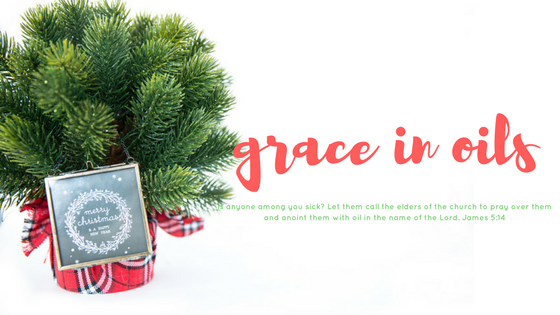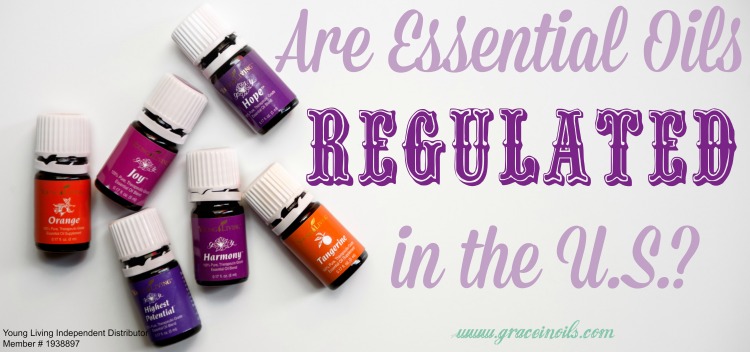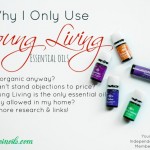Here is a statement I’m sure you have seen in one form or another if you have been researching or looking into essential oils for any amount of time. As long as there is 5% pure essential oil in a bottle of oil then the company can label it 100% pure. Another variation on wording is using 10% instead of 5% essential oil.
When I first saw that claim I was shocked but what I found out when I was doing my research is much more shocking in my opinion than that claim.
First of all though let’s discuss whether a company can claim an oil is 100% pure if it only contains 5% pure essential oils. From my research I discovered that the FDA does not have a definition for the term essential oils. In the aromatherapy field the term can be used to describe therapeutic grade (more on this later) essential oils all the way to fragrance oils. From the FDA website, “The law treats ingredients from plants the same as those from any other source.”
Let’s go over that one more time…
Per the U.S. Food and Drug Administration, “The law treats ingredients from plants the same as those from any other source.” If you read that to mean that the FDA considers synthetic lavender (created in a laboratory) and Lavandula angustifolia distilled at minimum temperatures in a custom steam distiller after it has been grown on land especially prepared for it and even if a company has gone as far as to inspect the seeds before the plants are ever grown and planted to be THE SAME EXACT THING then you would be correct.
Also the FDA does not regulate advertising claims. That falls under the jurisdiction of the Federal Trade Commission, and yes we’ll get into that in a second. Since the FDA does not see a difference between Lavandula angustifolia grown in natural environments and synthetic lavender from other sources then yes a claim of 100% pure, even if the product was created in a lab, is allowed by the FDA because, truthfully, they don’t care either way.
Federal Trade Commission and Advertising Claims
Let’s talk about advertising. We’ve discussed how the FDA doesn’t seem concerned about true essential oils. Does that mean a company can claim that their oil is pure even though it isn’t natural or 100% essential oil? Time to visit another regulatory body the Federal Trade Commission.
From the FTC website article titled Advertising FAQ’s: A Guide for Small Business:
Under the Federal Trade Commission Act:
- Advertising must be truthful and non-deceptive;
- Advertisers must have evidence to back up their claims; and
- Advertisements cannot be unfair.
Additional laws apply to ads for specialized products like consumer leases, credit, 900 telephone numbers, and products sold through mail order or telephone sales. And every state has consumer protection laws that govern ads running in that state.
From what I can deduce from this article and going by the FDA stance since there are no standards in U.S. regulations, laws or in any governing body for essential oils (manufacturing, grading, etc.) then YES a company can state their essential oil is 100% pure therapeutic grade without fearing impunity from the or FDA. Due to the FDA statement on its own website that, “The law treats ingredients from plants the same as those from any other source…” then as long as the chemical profile matches up to lavender a company can put a synthetic lavender in the bottle and pass it off to consumers.
But Sarah, What About the 5% Claims?
Oh, yes, let’s not forget about that gem. Here is where it gets in my mind a little confusing. I’ll explain and cite my resources and if anyone wants to chime in or point me towards more resources I’ll take it all into consideration.
I think, and I don’t know for sure, that this claim comes from the Title 27, Chapter I, of the Code of Federal Regulations stating that, “Toilet preparations containing not less than 10% essential oils general-use formula…” and “…This general-use formula shall consist of an article containing not less than 10% essential oils by volume.” The toilet preparation industry is a general category covering items including perfume materials, perfumes and perfume tinctures.
Here’s another fun tidbit from my hours of scouring the internet to gather all of this information. Under the Fair Packaging and Labeling Act (FPLA) companies are required by the FDA to include a list of ingredients. However, “this law is not allowed to be used to force a company to tell ‘trade secrets.’ Fragrance and flavor formulas are complex mixtures of many different natural and synthetic chemical ingredients, and they are the kinds of cosmetic components that are most likely to be ‘trade secrets.’” I think this is where the reference to “only need 5-10% essential oil to claim it as 100% pure” comes from. If a companies’ essential or fragrance oil constituents are covered by the trade secret status then they are not required to divulge their ingredients which could include stating if they used a solvent to produce the essential oil or what is in their fragrance oil and can claim it as pure.
My Conclusions
I’m never going to be the first person at the picket line asking for more government oversight but in this instance the fact that an essential oil company can tell a consumer that their product is 100% pure (which most consumers would equate pure with natural) is alarming, misleading, and dangerous. I don’t think we will see any government agencies stepping in to regulate this sector of the marketplace. Essential oils cannot be patented and therefore drug companies will not use them in research or fund research using them unless a compound can be synthesized from an essential oil that they can then patent. There is just no money in it for them. If a regulatory body were to come along and state, “Here is a list of requirements to call your essential oil therapeutic grade,” then it might open the door to begin considering essential oils under the drug classification and then having doctors begin to prescribe those oils for diseases instead of drugs. Which, I don’t need to tell you, would eat into a pharmaceutical companies bottom line.
My last takeaway is to please do your own research! Now that you know there is no governing body regulating the terms therapeutic grade and it is up to each company to determine what they consider therapeutic grade please look into the company you have been doing business with. If they aren’t growing the plants or working with partner farms I don’t care how many tests they run. It is not good enough for my family.
It is so frustrating to me when aromatherapists or other bloggers dismiss the term therapeutic grade as a marketing term. The fact that there isn’t a governing body regulating this should make every consumer more vigilant in reviewing their company and holding them to their own personal standards since your government will not do it for you. Young Living is the only essential oil company that owns their own farms. Gary Young has designed his own distilleries and the work he is doing at the Northern Lights farm just goes to show his dedication to his customers and to this field.
There are many reasons why I only use Young Living and the least of my concerns was the MLM aspect of their company. I, like many others, had my reservations against MLM’s but when I was doing my homework there just wasn’t another company that could stand up to their Seed to Seal guarantee.
Check out my most recent posts for more info & and a sweet offer for February enrollees:
Thanks for stopping by and I’d love to hear your thoughts!




thank you so much! It’s so scary what may be i some of those other bottles. Young Living only for my family!
I agree 100% I only use Young Living essential oils and I hope these facts help other families make the same choice!
Great article Sarah! Thank you for all your time spent researching these things out!
Thanks!
Have u personally been to all the farms leo has
Hopefully someday I will get the opportunity to go to the farms! They have them on 6 continents so while I wish I could visit all 8 farms it might never happen. God Bless!
Beautifully written… Thank you so much… If I may, I would love to print this out so I can share with others and send them to your blog as well!!! And I so appreciate your posting on the thread I started on the Mastermind Group… You helped a lot if people, including myself… Feeling Grateful!!!
Oh please do print & share! When I started researching into the 5% and 10% claims I knew I had to share because what I found is SO MUCH WORSE than the 5% claim in my opinion. Per the FDA, FTC, and pretty much any regulatory body in our government a company can sell consumers an essential oil that is synthetically produced and say it is 100% and natural without fearing any impunity. Thanks for checking my blog out and for your support!
Fantastic read. Wish I wrote it! Thank you for summarizing all of the research I was doing. Totally going to share this!!